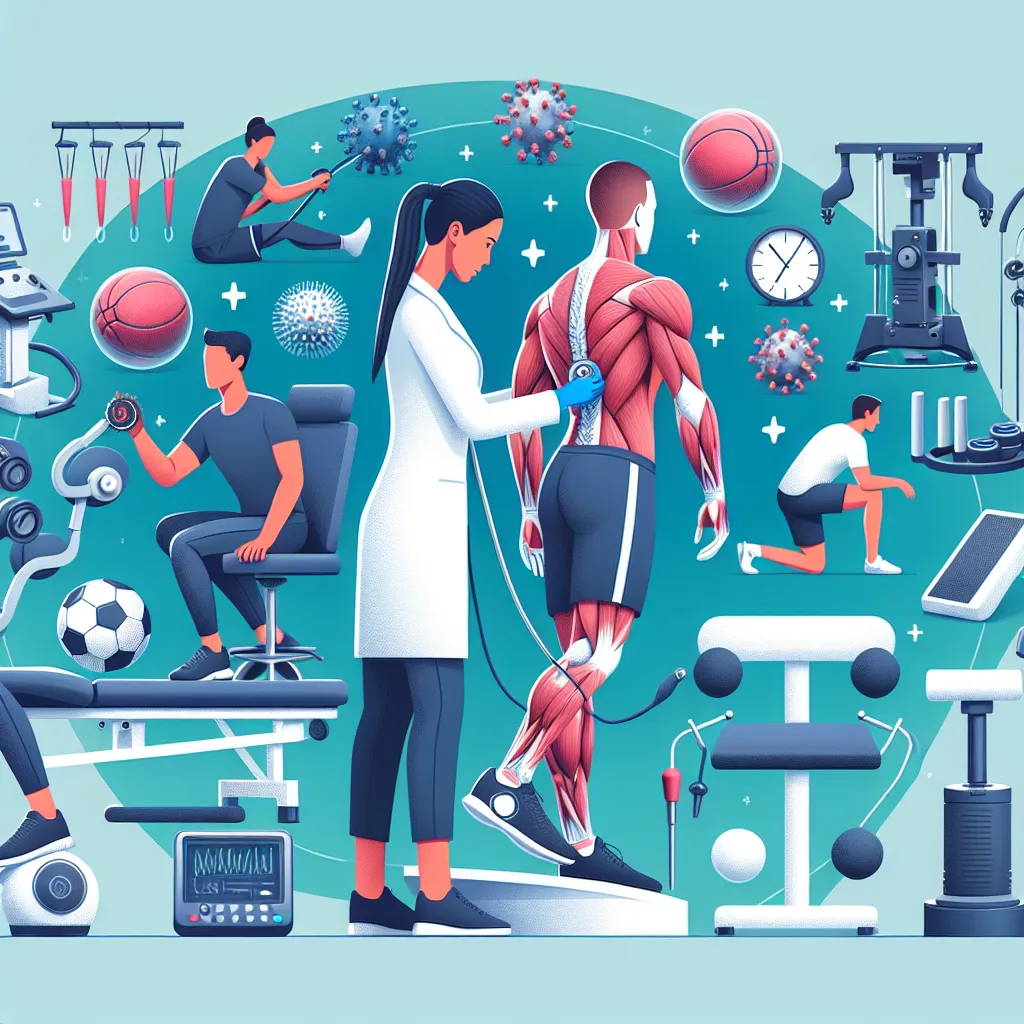Sports medicine is a crucial field that combines healthcare and athletic performance. For IELTS test-takers, understanding and using this specialized vocabulary can significantly boost your scores across all sections of the exam. Let’s dive into the world of sports medicine terminology and learn how to effectively use it in your IELTS preparation.
Defining Sports Medicine
Sports medicine is a branch of medicine that deals with physical fitness, treatment, and prevention of injuries related to sports and exercise.
- Part of speech: Noun phrase
- Pronunciation: /spɔːrts ˈmedɪsɪn/

Context and Usage
-
Example: The university offers a comprehensive sports medicine program for aspiring athletic trainers.
Analysis: This sentence demonstrates the academic context of sports medicine, highlighting its relevance in higher education. -
Example: After the injury, the athlete was immediately referred to the team’s sports medicine specialist.
Analysis: Here, we see the practical application of sports medicine in professional sports, emphasizing its importance in injury management. -
Example: Advances in sports medicine have significantly reduced recovery times for common athletic injuries.
Analysis: This example showcases the progressive nature of sports medicine and its impact on athlete care. -
Example: The sports medicine clinic provides services ranging from injury prevention to performance enhancement.
Analysis: This sentence illustrates the broad scope of sports medicine, covering both preventive and performance aspects.
Sports medicine terminology is highly relevant in IELTS, particularly in Reading and Writing tasks related to health, fitness, and athletics. It may also appear in Listening sections discussing sports injuries or treatments.
Analyzing Sports Medicine Vocabulary
Key Terms and Structures
-
Athletic trainer
- Part of speech: Noun phrase
- Pronunciation: /æθˈletɪk ˈtreɪnər/
- Definition: A healthcare professional specializing in preventing, diagnosing, and treating muscle and bone injuries in athletes.
-
Rehabilitation
- Part of speech: Noun
- Pronunciation: /ˌriːəˌbɪlɪˈteɪʃən/
- Definition: The process of restoring someone to health or normal life through training and therapy after injury or illness.
-
Biomechanics
- Part of speech: Noun
- Pronunciation: /ˌbaɪəʊmɪˈkænɪks/
- Definition: The study of the mechanical laws relating to the movement or structure of living organisms.
Synonyms and Antonyms
-
Injury (Noun)
- Synonyms: Harm, damage, trauma, wound
- Antonyms: Recovery, healing, wellness
-
Prevent (Verb)
- Synonyms: Avoid, avert, hinder, preclude
- Antonyms: Allow, permit, facilitate
-
Performance (Noun)
- Synonyms: Achievement, accomplishment, execution
- Antonyms: Failure, underachievement, ineffectiveness
Memorization Techniques
Mind Mapping
Create a mind map with “Sports Medicine” at the center, branching out to related concepts such as:
- Injury Prevention
- Treatment Methods
- Performance Enhancement
- Rehabilitation Techniques
- Nutrition for Athletes
This visual representation helps in understanding the interconnectedness of various aspects of sports medicine.
Storytelling Technique
Imagine a story of an athlete’s journey:
“Sarah, a promising young athlete, suffered a knee injury during a crucial match. Thanks to the quick intervention of the sports medicine team, she underwent immediate assessment and treatment. Through a tailored rehabilitation program that focused on strengthening exercises and biomechanics analysis, Sarah not only recovered but also improved her overall performance, showcasing the comprehensive nature of sports medicine.”
Practical Application in IELTS
Writing Task 2 Example
Question: Some people believe that advancements in sports medicine have made sports unfairly competitive. To what extent do you agree or disagree?
In your response, you could discuss:
- The role of sports medicine in injury prevention and treatment
- How rehabilitation techniques have evolved
- The impact of sports medicine on athletic performance
- Ethical considerations in sports medicine advancements
Remember to use relevant vocabulary such as “athletic performance,” “injury prevention,” and “rehabilitation techniques” to demonstrate your understanding of the topic.
Speaking Part 3 Practice
Question: How has sports medicine contributed to the evolution of professional sports?
Potential answer points:
- Discuss the increased longevity of athletes’ careers
- Mention faster recovery times from injuries
- Talk about the role of sports medicine in preventing injuries
- Explain how performance analysis has improved training methods
Conclusion
Mastering sports medicine vocabulary is essential for IELTS success, especially when tackling health and fitness-related topics. By understanding key terms, their usage, and applying them in context, you’ll be well-prepared to handle various questions across all sections of the IELTS exam.
Remember to practice using these terms in your writing and speaking exercises. Don’t hesitate to share your experiences or ask questions about sports medicine vocabulary in the comments below. The more you engage with this specialized language, the more confident you’ll become in using it during your IELTS test.
For more insights on related topics, check out our articles on sports therapy and sports analytics to further enhance your vocabulary in this field.